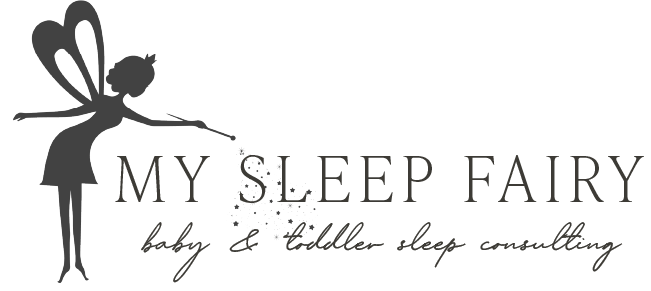When Will My Baby Sleep Through The Night?
This is a difficult question to answer without getting into some specific details, which is unfortunate, because when parents ask me this, I know they’re looking for a quick, concise, time-based answer.
“Three nights from now,” or “Six months old,” are the kind of responses they’re hoping for, and the kind I wish I could give them, but there are a lot of factors to consider, and some things to understand before you can narrow down the timeline.
The first thing I feel parents need to understand is this...
Your baby will never sleep through the night.
That’s right! They won’t sleep through the night when they’re toddlers, or when they’re teenagers, or when they’re grown-ups, because nobody ever does.
We human beings sleep in cycles, which vary from light sleep to deep sleep and back again. Occasionally, when we get into the light sleep stage of a cycle, we hear a noise, or we’re in the middle of a crazy dream, or the dog jumps on the bed, or we just shift a little, and that little thing, whatever it may be, is just enough to wake us up.
As adults, we have experienced this thousands of times, so we just shake it off and go back to sleep. Most of the time, the wake-up is so brief that we don’t even remember it the next day.
But for babies who are used to being rocked, sung, bounced or nursed to sleep, waking up in the night requires external help to get back into a peaceful slumber.
So that’s the reason why baby’s never going to sleep through the night, but then, that’s not what parents are really asking.
What they want to know is, “When will my baby be able to get back to sleep on their own?”
That’s a much easier question to answer. Quite simply, this will happen when they learn how.
When you teach your little one to go to sleep on their own, they’ll be able to employ that skill multiple times a night, every night, for the rest of their lives.
Now, there’s more to it than just leaving your baby alone in their crib and letting them figure it out for themselves. Don’t get me wrong, that approach has worked for a lot of people, but it’s not one that everybody is comfortable using, and it’s not the most gentle or effective way of teaching your baby great sleep skills.
The traditional Cry-It-Out approach is a lot like leaving your child in front of a piano with some sheet music and saying, “Figure it out.” Eventually, they just might, and you might just have the Lady Gaga of sleep on your hands. But assuming your child isn’t gifted in the sleep department, (and I’m just assuming they’re not, since you’re reading this) they could probably benefit from some lessons.
And as with any skill that a child needs to learn, practice is essential, so let them give it a shot. There’s probably going to be a bit of crying, but that doesn’t mean you can’t go in and encourage, comfort and reassure them.
What you shouldn’t do, however, is sit down at the piano and play it for them. Obviously, that doesn’t teach them anything. So whatever it is that you’ve traditionally done to get your child to go to sleep in the evening, or in the middle of the night, whether it’s giving them a pacifier, rocking them back to sleep, nursing them, whatever. These “sleep props” are the equivalent of playing the piano for your child to teach them how.
They may be frustrated, they may get upset, but they’ll learn with a little time and practice.
So although I can’t give an exact date or age when your baby will go through the night without crying and demanding help to get back to sleep, I can tell you without hesitation that it will be much, much sooner if you stop doing it for them.
Wondering if hiring a sleep coach is right for you?
Schedule a free get-to-know-me-call here!

